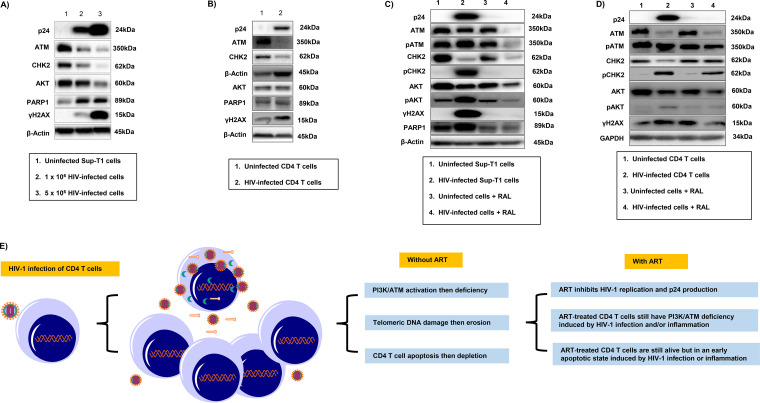FIG 6.
The PI3K/ATM pathways are dysregulated in HIV-infected T cells and promote DDR and cell apoptosis. (A) Western blot analysis of p24, ATM, CHK2, AKT, PARP-1, and γH2AX expressions in SupT1 cells at day 6 of HIV infection. (B) Western blot analysis of p24, ATM, CHK2, AKT, PARP-1, and γH2AX expressions in primary CD4 cells at day 5 of HIV infection. (C) Western blot analysis of p24, ATM, pATM, CHK2, pCHK2, AKT, pAKT, γH2AX, and PARP-1 expressions in SupT1 cells at day 6 of HIV infection with or without RAL treatment. (D) Western blot analysis of p24, ATM, pATM, CHK2, pCHK2, AKT, pAKT, and γH2AX levels in primary CD4 T cells at day 5 of HIV infection with or without RAL treatment. (E) A model of HIV infection in CD4 T cells. The PI3K/ATM pathways are suppressed, causing telomeric DNA damage and erosion and CD4 T-cell apoptosis and depletion during HIV infection. ART can partially reverse this process by inhibiting HIV replication. However, PI3K/ATM pathways will remain dysregulated in these virus-suppressed, ART-treated CD4 T cells, and thus the cells will survive but exist in an early apoptotic state in this setting of latent HIV infection and/or inflammation.

